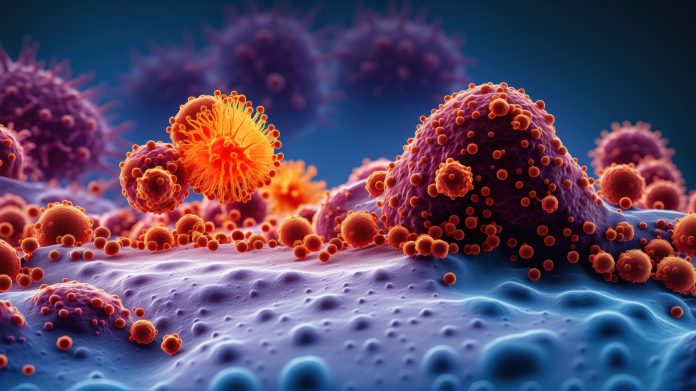Open Access News Cancer Research News First ever early pancreatic cancer diagnosis August 12, 2024 image: ©koto_feja | iStock Researchers have unveiled a pioneering method that could revolutionise the early detection of pancreatic cancer, a disease known for its late diagnosis and low survival rates Published in the journal Angewandte Chemie, the study introduces a new approach based on detecting specific antibodies in blood samples, offering hope for more precise and reliable screening. Earlier detection of pancreatic cancer Pancreatic cancer often evades early detection due to the lack of sensitive and specific markers. However, a multinational team led by scientists from the University of Verona, Italy, and the Center for Biomedical Research of La Rioja, Spain, has developed a technique targeting tumor-associated autoantibodies.
These autoantibodies, which the immune system produces in response to tumour-associated antigens like mucin-1 (TA-MUC1), circulate in the bloodstream even at the early stages of cancer development. Mucin-1 is a protein found in elevated levels in various cancers, including pancreatic cancer, and its altered glycosylation pattern makes it a prime target for early detection efforts. The researchers designed synthetic glycopeptides that mimic specific segments (epitopes) of TA-MUC1, using structural analyses and computer simulations of known antibodies.

These glycopeptides were then immobilised on gold nanoparticles to create probes suitable for a serological assay, known as a dot-blot assay. In validation tests using real samples from pancreatic cancer patients and healthy controls, the nanoparticle probes successfully differentiated between diseased and healthy individuals. Identifying antibodies The probes detected tumour-associated autoantibodies with significantly higher accuracy compared to current clinical biomarkers for pancreatic cancer.
The study highlighted that probes featuring smaller glycopeptide antigens corresponding to single epitopes showed superior diagnostic performance over larger, multi-epitope mimics. One standout probe, a short glycopeptide with a modified sugar component, emerged as particularly effective in identifying discriminating autoantibodies indicative of pancreatic cancer. By using the immune system’s response to cancer-specific antigens, this innovative method paves the way for more effective screening strategies that could ultimately save lives.
With further refinement and clinical validation, this promising diagnostic approach could soon become a critical tool in the fight against pancreatic cancer, addressing a longstanding need for better early detection methods in oncology. Facebook Twitter LinkedIn Print Editor's Recommended Articles Must Read >> Pancreatic cancer rates rising faster in women than men Must Read >> Scientists discover new treatment to fight pancreatic cancer Must Read >> Tackling the burden of pancreatic cancer in Europe TAGS Cancer Healthcare Innovation Medical Treatment Harriet Belderbos RELATED ARTICLES MORE FROM AUTHOR Routine blood tests could speed up cancer diagnosis for people with stomach pain or bloating Combining prostate cancer treatments raises heart disease risk Home screening test reduces colorectal cancer deaths How AI is being used to predict breast cancer survival durations New implantable device offers promising light-based cancer treatment AI breakthrough in cancer detection LEAVE A REPLY Cancel reply Please enter your comment! Please enter your name here You have entered an incorrect email address! Please enter your email address here Save my name, email, and website in this browser for the next time I comment. Δ.



















